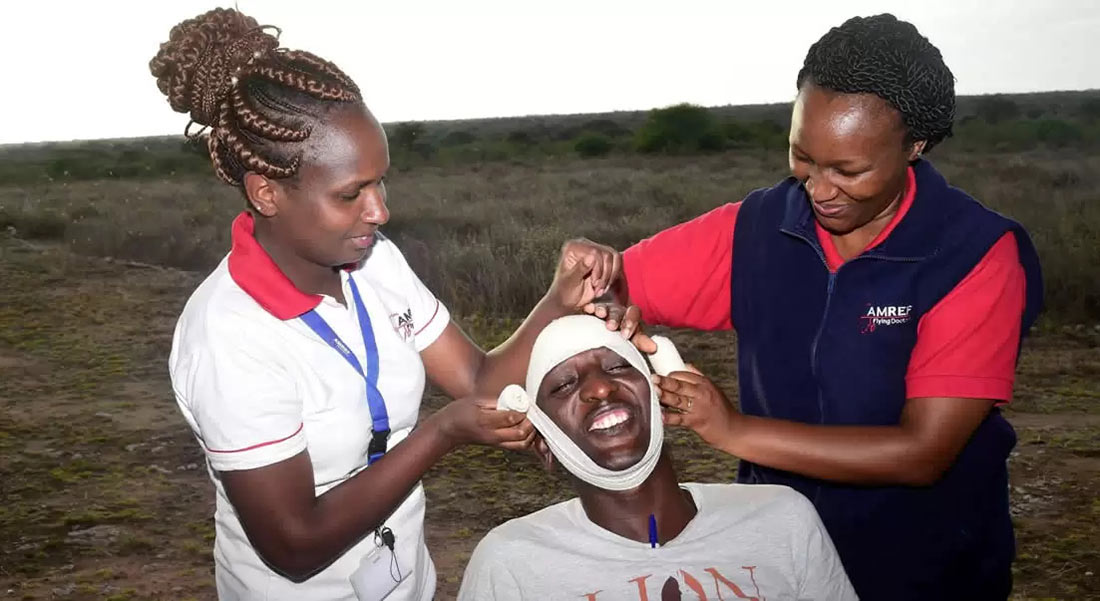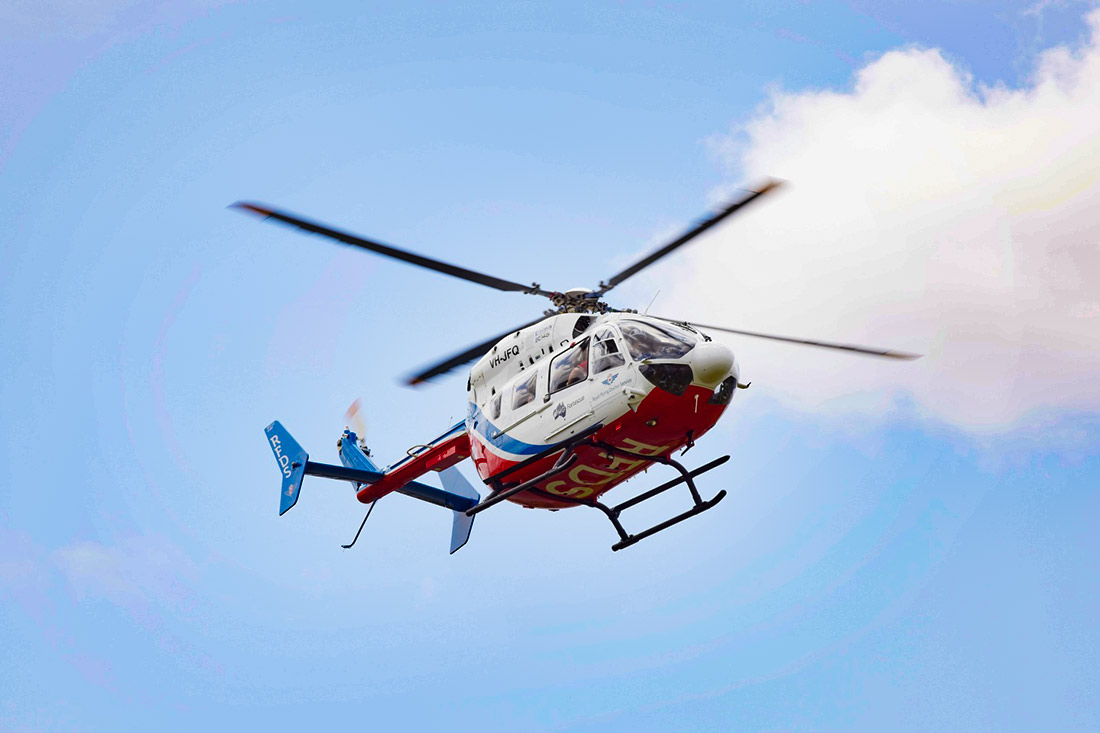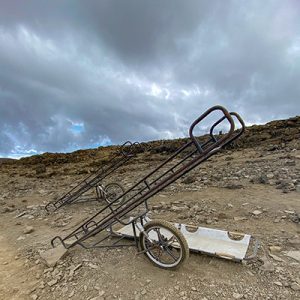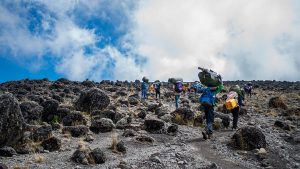When choosing an operator, make sure you chose one that has their guides go through and complete Wilderness First Responder courses.
Wilderness First Responder
What is Wilderness First Responder (WFR) training and why is it important? Accidents happen, and when you are on Kilimanjaro help is a long way off. Because of this, we have our guides get WFR certified to make sure you survive your accident or illness and are safely rescued off the mountain. They have been trained to treat injuries and illness as well as evacuation procedures. They will stabilize you and get you safely to a helicopter evacuation point for AMREF Flying Doctors to transport you if needed.
WFR courses are ideal for outdoor educators, wilderness guides, military personnel, and search and rescue teams. This course is also beneficial to wildland firefighters, researchers, and those involved in disaster relief.
Professionals and leaders working or traveling in remote and low-resource environments will benefit from this course’s training in wilderness medicine, leadership, and critical thinking.
The curriculum at WFR is both comprehensive and practical and consists of 70 hours of instruction.
During the course, students learn the principles and skills needed to assess and manage medical problems in isolated and extreme environments for days and weeks at a time if necessary. To earn certification, students must meet the criteria as well as the minimum WFR performance and testing standards by the end of the course.
So what training do they have? Below is a brief course outline to show what WFR certification entails. It is a 10-day course and in short, makes the graduate a doctor in the field.
Course Content
A comprehensive, complete, and up-to-date curriculum is provided for Wilderness First Responders every year. Here is a brief outline of the course.
- An overview of the general principles of wilderness and rescue medicine, emphasizing the prevention and identification of medical emergencies, appropriate technology, and risk management.
- Patient assessment and emergency care, including CPR, basic life support, and anaphylaxis and asthma treatment.
- The field of environmental medicine includes altitude sickness, hypothermia, heatstroke, frostbite, and cold injuries.
- Backcountry medicine includes the assessment and treatment of common medical problems.
- Musculoskeletal issues include overuse syndromes, dislocations, and unstable injuries.
- Management of open fractures, lacerations, burns, and blisters.
- A practical course that includes splinting, bandaging, litter packaging, and assembling a medical kit.
- WMA wilderness protocols include wound cleaning and exploration, spine injury assessment, and dislocation reduction. It also covers CPR in a remote setting, and anaphylaxis and asthma management.
Certifications
After successfully completing the course, students will receive a Wilderness First Responder certification and CPR certification equivalent to that of a health care provider. The certification is valid for three years.
All of our guides go through this course to make sure you are as safe as possible when climbing Kilimanjaro. We hope they don’t have to use what they have learned, but rest assured, if a problem arises they will know what to do.






